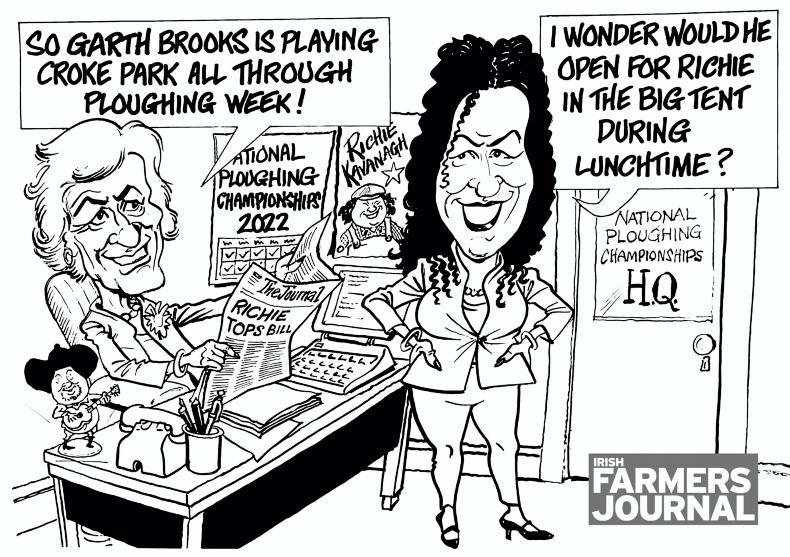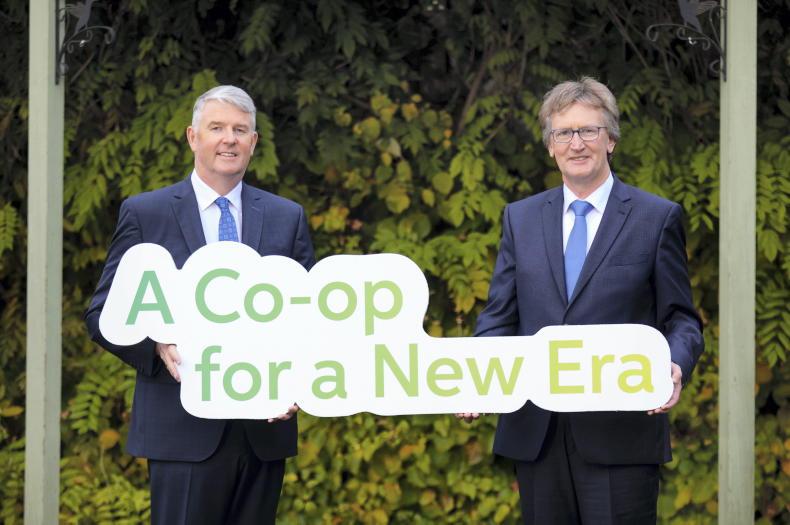In a statement this week, Glanbia Co-op chair John Murphy clarified that the co-op was in a position to fund the acquisition of Glanbia Ireland without the sale of Glanbia plc shares. It is a significant clarification, appearing to indicate that the deal to acquire the 40% shareholding in Glanbia Ireland from the plc for €307m is not contingent on reducing the co-op’s shareholding in the plc.
It therefore raises the question as to why alongside seeking a simple majority for the proposal to acquire the plc’s share in Glanbia Ireland at a special general meeting on 17 December, members are also being asked to vote on the much more significant proposal to allow the co-op board to reduce the co-op shareholding in the plc by almost 40% – from the current threshold of 28% to 17%.
Should the special general meeting be stripped back to a single proposal on the acquisition of Glanbia Ireland? If necessary, the co-op could avail of funding via the existing 3.5% share sale leeway threshold to fund the purchase. The proposal to sell down 40% of their shareholding in the plc could then be given more time if one is not contingent on the other.

\ Jim Cogan
Farmers to be included in renewable energy transition
As Stephen Robb writes this week, the Department of the Environment, Climate and Communications is developing a new small-scale generation scheme which will allow farmers, communities and businesses to develop renewable electricity projects from 50kW to 1MW in capacity. This will be in addition to the long-awaited micro-generation support scheme.
The news follows comments made by Minister for the Environment Eamon Ryan in November recognising the potential for anaerobic digestion (AD) to position farmers as part of the climate change solution.
His assertion that the Government will have to provide support to guarantee the economics of AD is welcome. The next step now is for Minister Ryan to follow through with policy that will give farmers and community groups the financial security necessary to allow them to develop these renewable projects and contribute positively in helping Ireland reduce carbon emissions.
Eco schemes lacking options for tillage farmers
The amended eco scheme proposals published last week continue to reflect a lack of real options for tillage farmers. While there are new options that seem to target tillage, it is difficult to find two that really suit.
From the initial proposals, the 7% “space for nature” option might work if it employs the same criteria used currently for environmental focus area assessment. Some farmers are above that percentage due to natural features but others are well below it. But this is a very uncertain option for growers who still rent land on an annual basis.
A big question here is whether other options like wild bird cover could be included in this calculation? Trees and hedgerows might be considered by a few growers but, again, this gets very complicated for those renting land. Where would the planting be done?
The new soil sampling option is an obvious choice as most tillage farmers are doing this either way. However, it can only be used one year in three or just twice in the five years of the next CAP.
While rotation is good farm and biodiversity practice, setting a target of 25% makes this either unattractive or unworkable for most farmers.
In a statement this week, Glanbia Co-op chair John Murphy clarified that the co-op was in a position to fund the acquisition of Glanbia Ireland without the sale of Glanbia plc shares. It is a significant clarification, appearing to indicate that the deal to acquire the 40% shareholding in Glanbia Ireland from the plc for €307m is not contingent on reducing the co-op’s shareholding in the plc.
It therefore raises the question as to why alongside seeking a simple majority for the proposal to acquire the plc’s share in Glanbia Ireland at a special general meeting on 17 December, members are also being asked to vote on the much more significant proposal to allow the co-op board to reduce the co-op shareholding in the plc by almost 40% – from the current threshold of 28% to 17%.
Should the special general meeting be stripped back to a single proposal on the acquisition of Glanbia Ireland? If necessary, the co-op could avail of funding via the existing 3.5% share sale leeway threshold to fund the purchase. The proposal to sell down 40% of their shareholding in the plc could then be given more time if one is not contingent on the other.

\ Jim Cogan
Farmers to be included in renewable energy transition
As Stephen Robb writes this week, the Department of the Environment, Climate and Communications is developing a new small-scale generation scheme which will allow farmers, communities and businesses to develop renewable electricity projects from 50kW to 1MW in capacity. This will be in addition to the long-awaited micro-generation support scheme.
The news follows comments made by Minister for the Environment Eamon Ryan in November recognising the potential for anaerobic digestion (AD) to position farmers as part of the climate change solution.
His assertion that the Government will have to provide support to guarantee the economics of AD is welcome. The next step now is for Minister Ryan to follow through with policy that will give farmers and community groups the financial security necessary to allow them to develop these renewable projects and contribute positively in helping Ireland reduce carbon emissions.
Eco schemes lacking options for tillage farmers
The amended eco scheme proposals published last week continue to reflect a lack of real options for tillage farmers. While there are new options that seem to target tillage, it is difficult to find two that really suit.
From the initial proposals, the 7% “space for nature” option might work if it employs the same criteria used currently for environmental focus area assessment. Some farmers are above that percentage due to natural features but others are well below it. But this is a very uncertain option for growers who still rent land on an annual basis.
A big question here is whether other options like wild bird cover could be included in this calculation? Trees and hedgerows might be considered by a few growers but, again, this gets very complicated for those renting land. Where would the planting be done?
The new soil sampling option is an obvious choice as most tillage farmers are doing this either way. However, it can only be used one year in three or just twice in the five years of the next CAP.
While rotation is good farm and biodiversity practice, setting a target of 25% makes this either unattractive or unworkable for most farmers.







 This is a subscriber-only article
This is a subscriber-only article










SHARING OPTIONS: